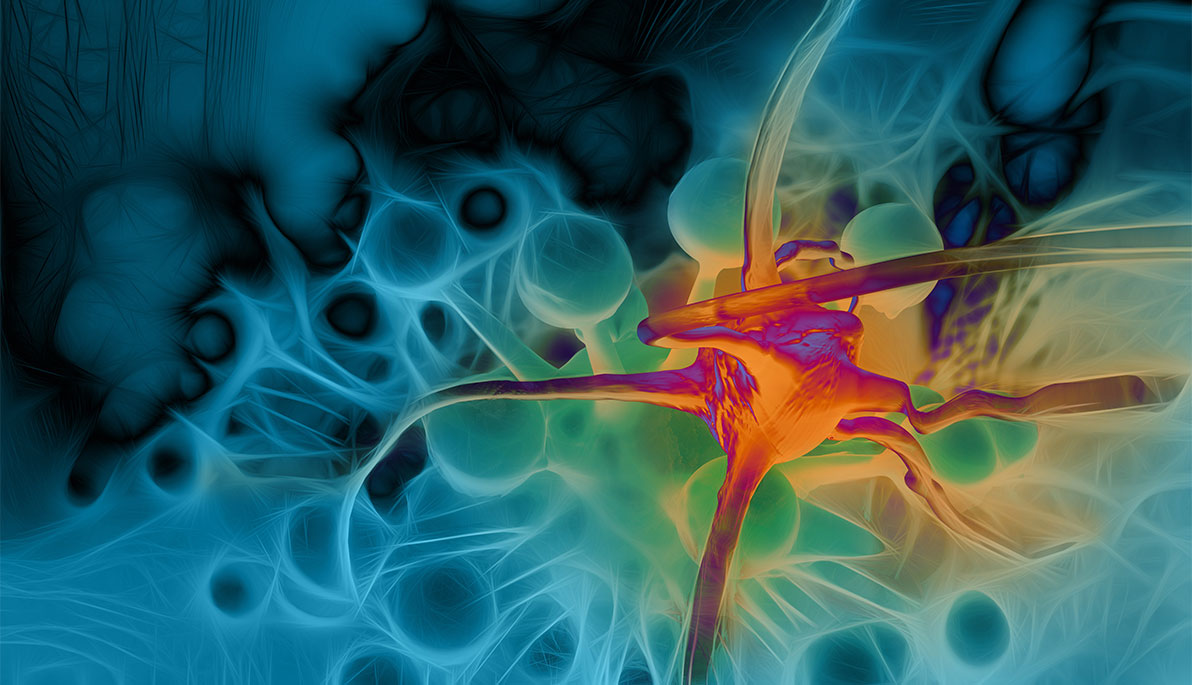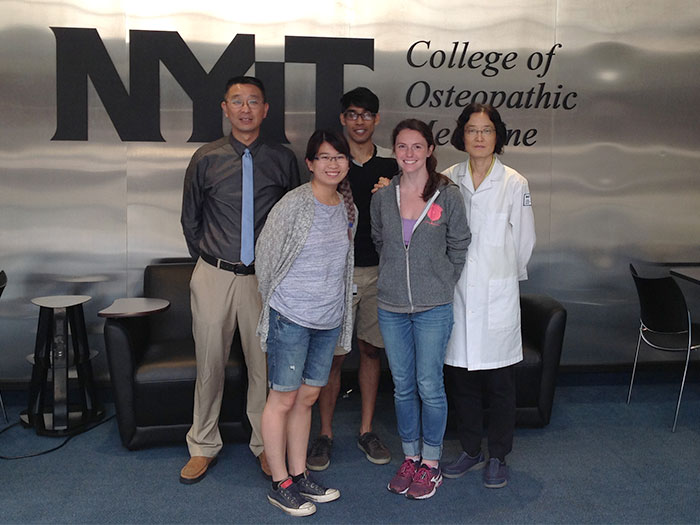
Potential Treatment Breakthrough May H-ALT Cancer
August 15, 2017
Dong Zhang, Ph.D., associate professor at NYIT College of Osteopathic Medicine (NYITCOM), and a team of researchers are one step closer to a more effective—and less toxic—treatment for cancer. The team discovered new lethal interactions that could inhibit the growth of tumors initiated from mesenchymal cells, which develop into connective tissue found in such areas as bones, soft tissues, and the central nervous system.
The treatment would target alternative lengthening of telomere (ALT) cancers. Healthy human cells continuously divide until their cycle ends. Each time they divide, the caps at the end of DNA, called telomeres, get shorter. These “caps” are controlled by the enzyme telomerase. If the cap gets too short, the cell stops dividing and eventually dies. However, telomerase can be reactivated, causing the cell to continue to reproduce and form tumors. “Eighty-five to 90 percent of all cancers reactivate telomerase,” explained Zhang.
Various therapies and treatments exist for these types of cancers. However, ALT cancers, which account for only an estimated 10 to 15 percent of cancer cases and include some of the most-deadly cancers such as glioblastoma, osteosarcoma, and pancreatic neuroendocrine tumors, do not use telomerase. The result is that they are much more difficult to treat, and the only current treatment option is chemotherapy, which is known to injure healthy cells and cause unpleasant side effects.

Dong Zhang, Ph.D., left, with NYITCOM students Joyce Kong, Naveed Ahmed, and Marti Goldenberg, and Xiaolei Pan, Ph.D., staff scientist and first author on the paper.
To better understand what conditions could inhibit the growth of ALT cancers, Zhang and the team investigated three human genes associated with cancer development: FANCM (mutations of which are associated with blood cancers and breast cancers), BRCA1 (mutations of which are commonly found in patients with breast and ovarian cancers), and BLM (mutations of which cause a variety of cancers).
What they discovered is that a new synthetic lethal interaction could inhibit the growth of the ALT tumors if you eliminate FANCM and BRCA1 genes or FANCM and BLM genes simultaneously. The result is a dramatic increase of un-repaired DNA damages, which prevents the cancerous cells from reproducing. “When the DNA damages pass a certain threshold, or there is too much unrepaired DNA, the cell will then activate the cell death process and eventually die. Now you kill the cancer,” Zhang explained.
Next, Zhang plans to develop a drug that will target only the unhealthy cells related to these cancer-causing genes, with the hope that the drug will not cause the toxic side effects associated with conventional chemotherapy drugs.
“Cancers are very sneaky and complicated, and there is no one single magic drug that will kill all cancers,” Zhang said. “The hope is to develop treatments that battle a specific type of cancer; this breakthrough has the potential to knock out some of the most lethal cancers.”
Read more about Zhang’s findings in the July issue of Proceedings of the National Academy of Sciences.
More Features

An Alumnus’ Commitment to the Environment
As an energy management graduate from New York Tech’s Vancouver campus, Jasdeep Gulati (M.S. ’22) is highly invested in educating people about environmental and climate sustainability.

Vancouver Faculty Win University-Sponsored Research Awards in New Program
The new Global Impact Research Grant (GIRG) program has been developed to keep Vancouver-based faculty connected to faculty and research projects being conducted on the university’s New York campuses.

Studying Climate Change One Degree at a Time
Junhua Qu (M.S. ’24) began her collegiate journey in Beijing. But, her interest in climate change took her to New York Tech’s Vancouver campus to study energy management.
